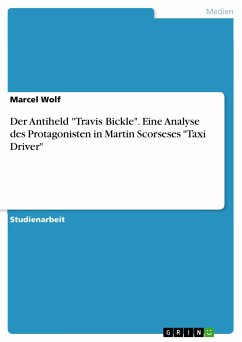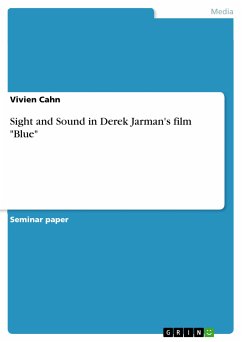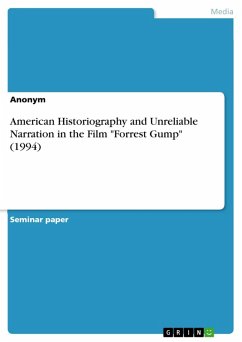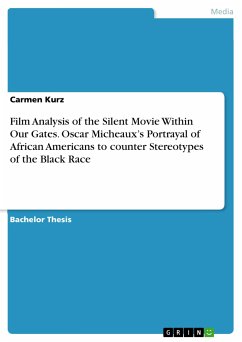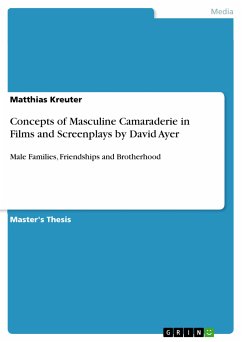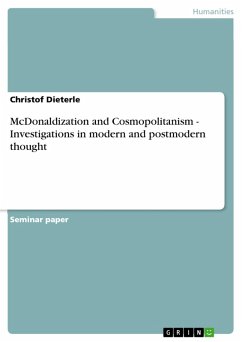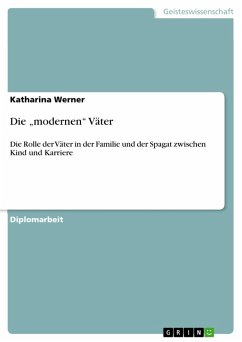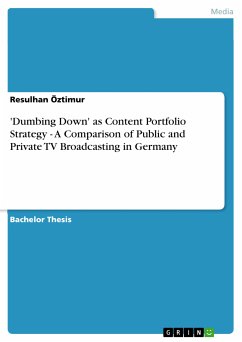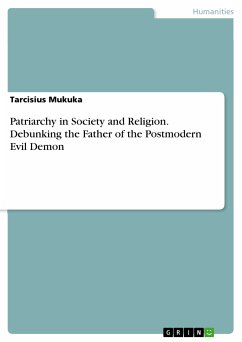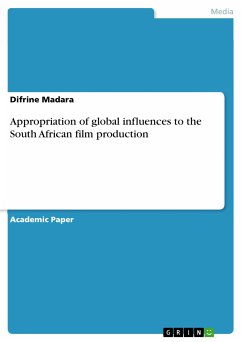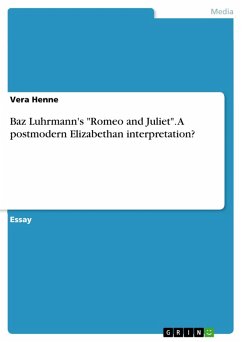
Baz Luhrmann's "Romeo and Juliet". A postmodern Elizabethan interpretation? (eBook, PDF)

PAYBACK Punkte
0 °P sammeln!
Essay from the year 2015 in the subject Communications - Movies and Television, grade: 1,0, University of Brighton, language: English, abstract: Baz Luhrmann's "William Shakespeare's Romeo + Juliet" (1996) retells the famous story of Romeo and Juliet who fall in love but cannot be together due to their families' old feud. In many English literature lessons this film adaptation is popular to familiarize people with William Shakespeare's plays and language. Due to the juxtaposition of Shakespeare's words, fast colourful pictures and teenage stars such as Leonardo DiCaprio and Claire Danes the di...
Essay from the year 2015 in the subject Communications - Movies and Television, grade: 1,0, University of Brighton, language: English, abstract: Baz Luhrmann's "William Shakespeare's Romeo + Juliet" (1996) retells the famous story of Romeo and Juliet who fall in love but cannot be together due to their families' old feud. In many English literature lessons this film adaptation is popular to familiarize people with William Shakespeare's plays and language. Due to the juxtaposition of Shakespeare's words, fast colourful pictures and teenage stars such as Leonardo DiCaprio and Claire Danes the director Baz Luhrmann claims this adaptation to be an "Elizabethan interpretation of Shakespeare". Adapted to the modern Zeitgeist Luhrmann staged a combination of an updated version of the classic in a multimedia time and preserved traditional essential elements such as the language and main themes. The adaptation lets the cast speak the Shakespeare's original text and combines it with fast modern video art. The combination of the Elizabethan English language and the recontextualisation of the classic love story with news, TV, swords as guns, advertisements, and ecstasy led Jane Maslin, a reviewer form the NY Times, to remark "[t]his is headache Shakespeare, but there's method to its madness". The adaptation is widely recognized to be postmodern. This does not seem to coincide with Luhrmann's aspiration of an "Elizabethan adaptation" of the classic dramatic love story. So the question arises: Can a postmodern interpretation be an "Elizabethan interpretation" at the same time?
Dieser Download kann aus rechtlichen Gründen nur mit Rechnungsadresse in A, B, BG, CY, CZ, D, DK, EW, E, FIN, F, GR, HR, H, IRL, I, LT, L, LR, M, NL, PL, P, R, S, SLO, SK ausgeliefert werden.




